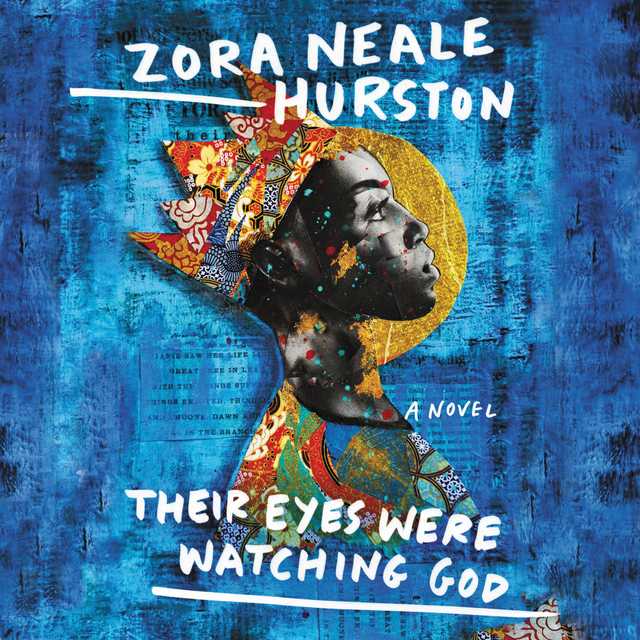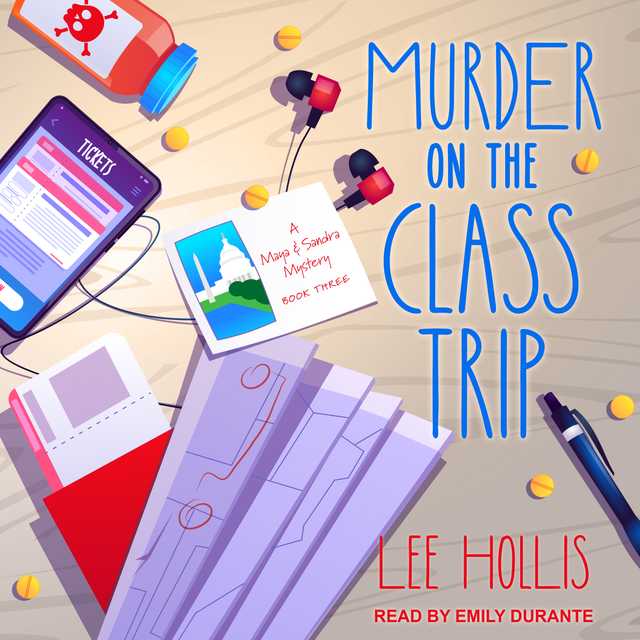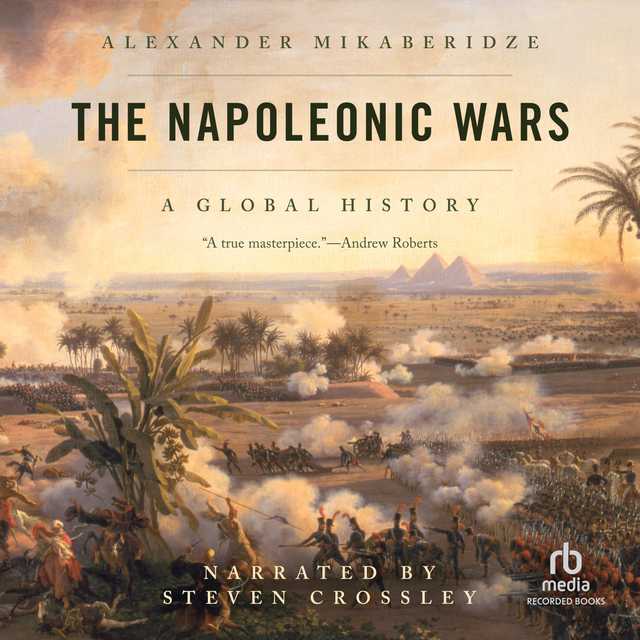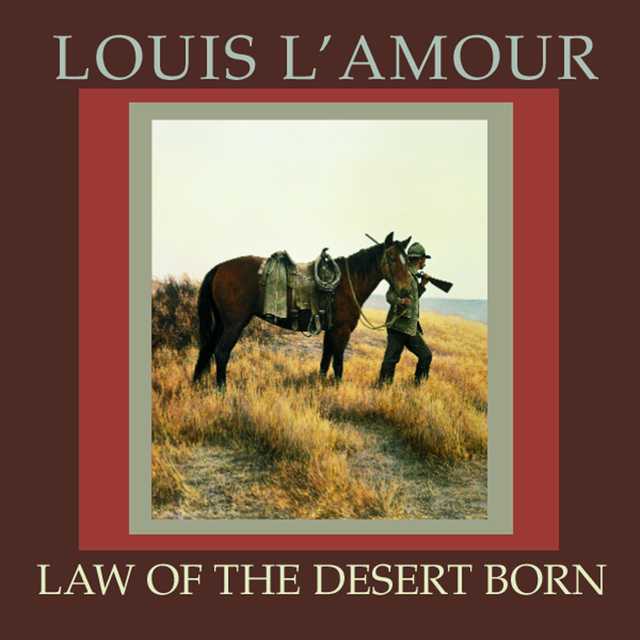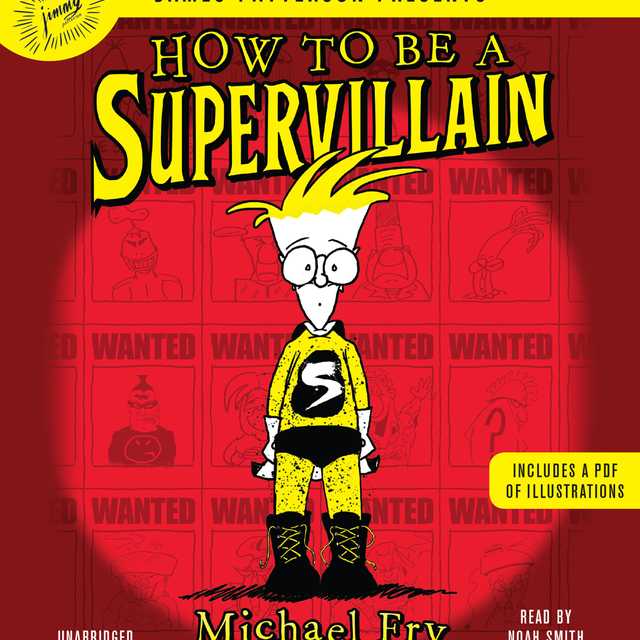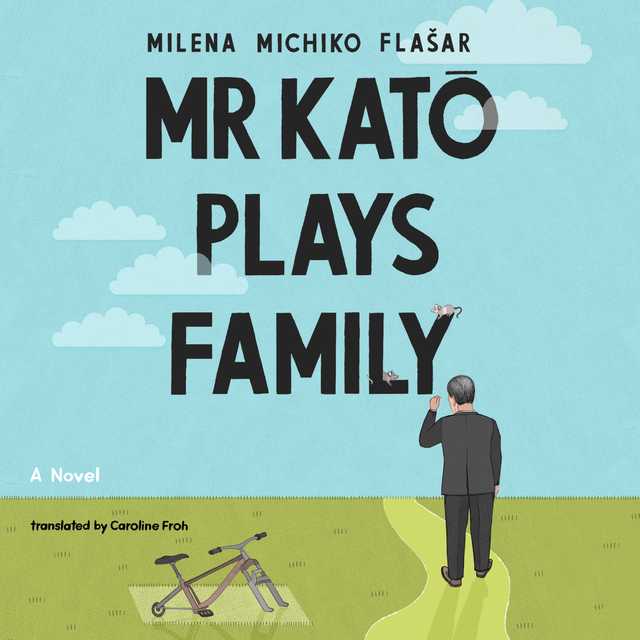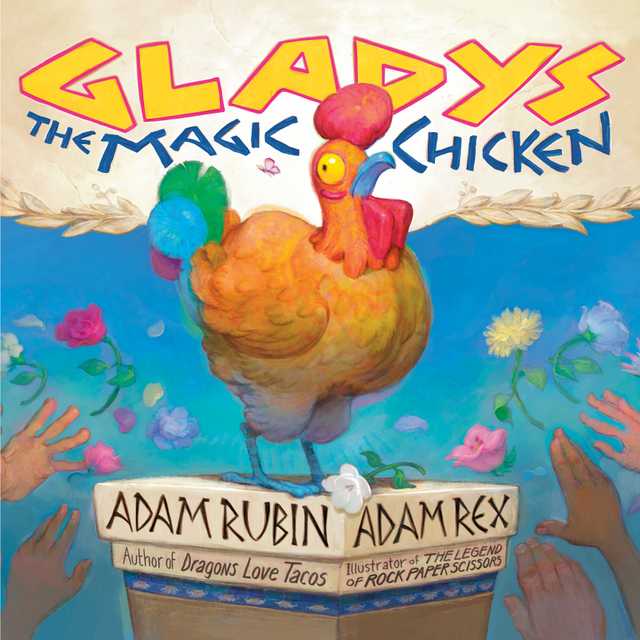Their Eyes Were Watching God Audiobook Summary
“A deeply soulful novel that comprehends love and cruelty, and separates the big people from the small of heart, without ever losing sympathy for those unfortunates who don’t know how to live properly.” –Zadie Smith
One of the most important and enduring books of the twentieth century, Their Eyes Were Watching God brings to life a Southern love story with the wit and pathos found only in the writing of Zora Neale Hurston. Out of print for almost thirty years–due largely to initial audiences’ rejection of its strong black female protagonist–Hurston’s classic has since its 1978 reissue become perhaps the most widely read and highly acclaimed novel in the canon of African-American literature. The audio is performed by the legendary Ruby Dee.
Other Top Audiobooks
Their Eyes Were Watching God Audiobook Narrator
Ruby Dee is the narrator of Their Eyes Were Watching God audiobook that was written by Zora Neale Hurston
Not only is Ruby Dee one of the most respected African-American actors of her day, she was also an important part of the civil rights movement. She is probably best known for her role in A Raisin in the Sun, which she performed on both the stage and the screen.
Dee has also written plays, fiction, and a column in New York's Amsterdam News.
Born in Cleveland, she worked initially with the American Negro Theater in Harlem, where she grew up. She is married to the actor and author Ossie Davis.
About the Author(s) of Their Eyes Were Watching God
Zora Neale Hurston is the author of Their Eyes Were Watching God
More From the Same
- Author : Zora Neale Hurston
- You Don’t Know Us Negroes and Other Essays
- Every Tongue Got to Confess
- Barracoon
- Mules and Men
- Dust Tracks on a Road
- Publisher : HarperAudio
- Abraham
- American Gods [TV Tie-In]
- Dead Ringer
- House of Sand and Fog
- Prey
Their Eyes Were Watching God Full Details
| Narrator | Ruby Dee |
| Length | 6 hours 44 minutes |
| Author | Zora Neale Hurston |
| Category | |
| Publisher | HarperAudio |
| Release date | October 31, 2005 |
| ISBN | 9780060842765 |
Additional info
The publisher of the Their Eyes Were Watching God is HarperAudio. The imprint is HarperAudio. It is supplied by HarperAudio. The ISBN-13 is 9780060842765.
Global Availability
This book is only available in the United States.
Goodreads Reviews
Emily May
January 16, 2019
Janie saw her life like a giant tree in leaf with the things suffered, things enjoyed, things done and undone. Dawn and doom was in the branches. I've spent many years wanting to read this book, but also not wanting to read it because the title made me think it was going to be heavy on religion, which is something I generally avoid in books. It's not, though. It's a wonderful, lyrical tale of a woman's life and search for independence.Now I'm fascinated by interpretations of the title because religion and God don't feature much in the story at all. I’ve been reading about the idea that the title implies how Janie must look to God - not white people, not husbands, not well-meaning family members - to determine her future. While this theory doesn't give her much agency, it does fit with her search for a life outside of others' expectations (except God's).It's set in Florida in the early 20th Century, at the height of Jim Crow. The novel begins with Janie Crawford sharing her life story with her friend Pheoby. We are taken back to her youth and sexual awakening-- an event that triggers her grandmother's insistence that she marry for protection. Nanny, herself, is fascinating. You feel both Janie's frustration toward her controlling grandmother, and Nanny's desire that Janie will have a better life and be taken care of. "She was borned in slavery time when folks, dat is black folks, didn’t sit down anytime dey felt lak it. So sittin’ on porches lak de white madam look lak uh might fine thing tuh her. Dat’s whut she wanted for me – don’t keer whut it cost. Git up on uh high chair and sit dere. She didn’t have time tuh think whut tuh do after you got up on de stool uh do nothin’." As you can see from above, the novel's dialogue makes strong use of dialect and colloquialisms. Through three marriages and many instances of physical abuse, Janie remains fierce and unapologetic. It was a terrible time in America for a black woman to find freedom and independence, but Janie pursues it nevertheless. It's now eighty years after the book's first publication and Janie's indistinguishable spirit is as captivating as it surely always was.In the end, the book is about defying expectations and living for oneself. Everyone in Janie's life wants and expects something from her. Her Nanny wants her to marry for protection, white men want to keep her down, darker-skinned African-Americans feel she should emphasize her lighter skin, each of her husbands wants her to behave and dress in a way that suits them. But Janie remains wholly herself throughout. I love her.Blog | Facebook | Twitter | Instagram | Youtube
s.penkevich
October 03, 2022
‘There are years that ask questions and years that answer.’When so much in life is busy talking over or silencing others, finding your voice and having it heard is important to securing your place and being valued. This was something Zora Neale Hurston understood in her own life and her masterpiece work, Their Eyes Were Watching God, is the life narrative of her protagonist, Janie, chasing her horizon and finding her voice as a Black woman in a world dominated by men and gatekept by white people. The quest myth is the heartbeat driving the narrative as we follow Janie embarking from her home to endure the trials and tribulations of bad marriages, social scufflings and even the violent forces of nature to return with a voice ready to tell the testimony of her travels, which is where we find her as the novel begins. Though the road is long and beset by troubles, the novel feels more a celebration of freedom told with an underpinning of joy rather than bleakness with Janie seeking out self-actualization and fulfillment in life and love, boldly rising above the obstacles the world—especially the men around her—throws in her path. With an elegant use of symbolism to highlight the critiques on obdurate social roles and hierarchy in a quest for freedom and selfhood, Their Eyes Were Watching God is an absolute classic work of literature that withstands the test of time.‘Now, women forget all those things they don't want to remember, and remember everything they don't want to forget. The dream is the truth. Then they act and do things accordingly.’Janie’s quest for the horizon of independence as a Black woman in the 1930’s US south is altogether not so different from the feat the author achieved in bringing this book out in 1937, and then becoming a canonized literary classic. Hurston was working within the confines of a very gatekept white, male literary tradition in a country that used (and often still uses) their framework as the yardstick for value, though in this hostile terrain Hurston—a folklorist and anthropologist—was able to grow her voice as well as help make space for Black literature, and especially Black women, to blossom. The intersections of misogyny and racism—termed ‘misogynoir’ by Black feminist writer Moya Bailey in 2010—are something that Janie herself must navigate in the novel, particularly from husbands who use their fists as a method of controlling women. Hurston’s education in folklore and anthropology are a gift as we see her making exceptional use of literary tradition in a way that is entirely her own. The story itself embodies the archetypes of the hero’s journey, as written by Joseph Campbell, leaving her grandmother’s house on an adventure of sorts, the awful marriages and social issues as trials, the ‘belly of the whale’ moment being a hurricane and her return to Eatonville to tell Phoebe her story having been transformed and embracing her freedom and voice as the Freedom to Live stage of the monomyth. The framing of the narrative as Janie telling her story to Phoebe also reflects the idea of oral storytelling and, particularly with the lyrical aspects of the prose, is an embrace of Black storytelling traditions. Their Eyes Were Watching God is art made of working class Black people and the dialogue is written in diction rife with colloquialisms to represent this, with Hurston displaying an excellent ear for language and a lyricism that truly brings this book to life. She also uses free indirect discourse to great advantages of prose, dipping between perspectives and often embedding dialogue of multiple characters without quotation markers that creates a brilliant fluidity to the novel that manages to never be confusing. This is particularly informative on the divide between the perspective of narrator Janie in the ‘present’ and Janie in the past, with careful readings of passages seeing the sensibilities of both (and other characters) interchangeably throughout a single paragraph. ‘Ships at a distance have every man's wish on board. For some they come in with the tide. For others they sail forever on the horizon, never out of sight, never landing until the Watcher turns his eyes away in resignation, his dreams mocked to death by time. That is the life of men.’The horizon is a key symbol in the novel, the idea of something grand to chase after, an image of possibility. It has an almost mystical quality, being where ‘she saw the sun plunge into the same crack in the earth from which the night emerged,’ also making it a symbol of life and death. In the start we find Janie feeling closed in and the world getting smaller, seeing nothing but ‘narrow hallways’ in her grandmother’s home and conceived of a grander life out there. ‘She searched as much of the world as she could from the top of the front steps and then went on down to the front gate and leaned over to gaze up and down the road. Looking, waiting, breathing short with impatience. Waiting for the world to be made.’Throughout the novel, Janie looks for ways to chase her horizon, leaving one bad marriage for another on the assumption that it will allow her more mobility, which it does to some extent being married to a mayor, but also finds the dominance of men to be restrictive and violent against her. ‘Love is lak de sea. It’s uh movin’ thing, but still and all, it takes its shape from de shore it meets, and it’s different with every shore.’We see a lot of disillusionment with the world through Janie’s eyes. Her grandmother insists ‘Ah done the best Ah could do,’ saying she only wanted to protect her against the world but then also pressures her into a marriage with a man she does not love or want to be with. She sees how marriage is often something of convenience and security but devoid of love, another mark on her list of the world closing around her and depriving her of freedom. ‘She knew now that marriage did not make love,’ we are told, ‘Janie’s first dream was dead, so she became a woman.’‘Janie saw her life like a giant tree in leaf with the things suffered, things enjoyed, things done and undone. Dawn and doom was in the branches.’Coupled to the symbolism of the horizon is that of a pear tree, specifically the pear tree under which Janie has her first moment of sexual awakening kissing a boy. When Janie sees a bee pollinating the early flowers on the tree she thinks ‘so this was a marriage!’ and her ideas of happiness and sexual fulfillment are intertwined, being a large object on the horizon she chases. As mentioned, after her terrible arranged marriage she leaves to marry Jody Stark. We are told ‘Janie pulled back a long time because he did not represent sun-up and pollen and blooming trees, but he spoke for far horizon,’ and the lack of love in the marriage still took her closer to the horizon, but not enough. His death leaves her feeling free to chase the horizon again. This contrasts with her impression of Tea Cake, the true love of her life with whom she can wed sexual fulfilment with self-agency: ‘He looked like the love thoughts of women. He could be a bee to a blossom – a pear tree blossom in the spring. He seemed to be crushing scent out of the world with his footsteps. Crushing aromatic herbs with every step he took. Spices hung about him. He was a glance from God.’Notice the pear tree again being a key in the way she regards love. Though with Tea Cake she faces the scrutiny of townsfolk—the gatekeepers on the journey if we are keeping up with Campbell’s archetypes—who find their dating scandalous and try to warn Janie off him, so they chase the horizon together and flee. With every step towards fulfillment, Janie finds a new social adversary arises like a trade-off and she must constantly overcome them.The biggest obstacle, especially early on, is the understanding of violence and its use towards oppression. This is most notable with Jody who publicly assaults her, but it is merely the most aggressive moment in a long line of men keeping women like Janie down. Hurston has mules become a symbol of victimization, playing off Janie’s grandmother saying that Black women are ‘de mule uh de world so fur as Ah can see.’ Mules make an appearance first when the gift of a mule by first husband Logan to make her labor more has Janie realizing he views her like an animal and treats her according to this view, and again when Janie pities the mule in Eatonville because it is widely mocked by the townspeople. Jody’s purchase of the mule is symbolic of empty gestures for the sake of good PR (he is a mayor afterall), and also indicative of his relation to everything as property to be owned. In The Second Sex, existential feminist Simone de Beauvoir discusses how society moving towards valuation of property and gobbling up ownership as status by proxy made men objectify their wives as property, and this attitude is shown in Jody’s treatment of Janie as more an accessory to his status than as a woman. He beats her to keep her under his guidelines and does not value her agency, the thing she most seeks. Later, Janie will recognize that she must meet violence with violence to survive as a Black woman amongst men, and when she publicly beats Tea Cake after he hits her, they are seen as on more equal footing and Tea Cake respects it. The biggest transformation in Janie occurs in their new home, when having faced the threats of people she must now weather the storms of nature, and not everyone survives. During this storm there is an interesting erasure of status and social roles as everyone is simply trying to survive. If the tree represents love, the hurricane is a symbol of destruction and complete disregard for human hierarchies. ‘They seemed to be staring at the dark, but their eyes were watching God,’ Hurston states, everyone suddenly on the same footing at the precipice of oncoming death. The book is less religious of a novel as the title might imply, though religious symbolism is frequent in the novel. Three marriages for instance, with the number three representative of the holy trinity where the last was fulfillment but each was another lesson on the way towards actualization.‘So her soul crawled out from its hiding place..’Their Eyes Were Watching God is an extraordinary novel that I first encountered in my university days and was just as good if not better upon the reread. I’ll always remember that course fondly as the professor was one of my favorites and really helped shape how I wrote papers, a lot of holdovers from that class still pop up in many of my reviews (like usually having a thesis statement). Zora Neale Hurston is a fantastic writer and honestly a literary icon and if you haven’t read this one yet I would highly encourage it. It draws from a rich literary tradition and is so full of symbolism, metaphor and outstanding writing that it is hard to put down. A gem for sure.5/5‘Here was peace. She pulled in her horizon like a great fish-net. Pulled it from around the waist of the world and draped it over her shoulder. So much of life in its meshes! She called in her soul to come and see.’
Fabian
September 23, 2019
A story as melancholic for its relationship to the writer's own life/destiny as another Southern masterpiece "Confederacy of Dunces." I cannot imagine that this isn't Toni Morrison's true foundations of prose--the beauty of which borders on the sublime. The modernism of "Their Eyes" lies in the intermixing of 1930's black vernacular with poetic lines which themselves carry astute and precise craft--this is outstanding. Lightning in a bottle--that's what this book reads like.I love to choose sides in literary battles--most of which are absurd but still funny to reminisce about (as if the reader himself was actually there). Richard Wright versus Zora Neale Hurston. A 500 page discourse on the unfairness of being black ("Native Son"), vs. this, a behemoth underdog, a "rediscovered" gem of a novel which sings and never underwhelms. "Their Eyes" is better, Hurston a better writer, THE END. Janie the pre-feminist heroine is incredibly free--restraints are identified & gotten rid of properly--& this independence can be seen in the intrepid style with which high & low literature interplay. The prose is severely, sincerely alive.The sadness comes when you realize that Hurston was outright forgotten--she had to be found, her grave properly marked, by none other than Alice Walker (the topic for a screenplay perhaps?). Even the man at the end of "Their Eyes" has a proper burial, while she, the progenitor of it all was utterly forgotten--but re-found by smart and freeminded readers. The prophecy is chilling, but the body of work is its stark opposite--alive, beautiful, raw, human, poetic, godly.
Lala
April 27, 2021
reading vlog https://youtu.be/cJ9MTlJz82I
emma
January 05, 2021
Two things:1) This is deserving of the one-of-the-great-classics-of-the-20th-century title.2) Every book should be large print.To elaborate on both:This is a beautifully written, brilliantly characterized, and consuming read. I tend to hate historical fiction, but when it's done like this I love it completely.Equally significantly, I accidentally bought the large-print version of this book, and now I want to do that forever.Those are my two PSAs.Bottom line: Read this book, and give large print editions the respect they deserve.--------------pre-reviewi should have paid more attention the first time. or any attention at all, rather.review to come / 4 stars--------------currently-reading updatesi read this in school and do not remember a single thing about it.realizing i may have only pretended to read this in school.
Kevin
July 05, 2018
Zora Neale Hurston was born to write.This 1930s deeply human story of one indefatigable black woman's life, loves and catastrophes dazzled and delighted me from start to finish.It was apparently written in a hurry and the story does have a breakneck feel to it. Characterful expressions burst from its pages; the syncopated, lively dialogue of the black people of the day is lush and gorgeous to read.But please don't accept my effusive review as a recommendation. This book is not a generic crowd-pleaser and won't suit all tastes. It is dialogue heavy and at times I felt I was reading a theatre script, rather than a novel. I've seen that some readers weren't able to get to grips with the spoken vernacular, which surprises me no end. This white English/Irish guy had no problem whatsoever and, in fact, the person whose review inspired me to read this (@Lisa) is Swedish and she clearly had no difficulty either!Lisa's reviewFor me, the writing was irresistible. I do however think it wouldn't be for everyone.
Melissa
June 13, 2008
When I teach Zora Neale Hurston's Their Eyes Were Watching God, I tell my students the Alice Walker headstone story and teach the book as a Black Feminist novel that is far, far ahead of its time. I noticed this year that my introduction made my students expect the protagonist, Janie, to jump from the novel's pages as a woman warrior, take no shit from anyone, and--I don't know--burn her bra. But the real beauty of Hurston's novel is that her heroine is a real character living in a real world--albeit, one that is touched by literary genius and reflective of literary genres as varied and vital as (Hurston's scholarly focus) African American Folk Tradition and the odyssey of the "high mimetic form". (A Black woman presented as the hero of an epic journey in 1937--simply amazing.) Janie struggles. Janie submits. Janie silences herself. But Janie grows. And, in my mind, a revolution begins.Hurston's character construction is superb. At once, her characters are strongly allegorical AND so real that they are breathing entities in the reader's mind (and disturbingly remind you of that uncle you don't really like). Janie is as real as they come. By the end of the story, I, as a reader, am her best friend Pheoby, sitting on that porch with her and listening her to tale. I understand her insecurities, I feel her pain, I smile as she inexplicably giggles for two pages, and I am full of that emotion the conclusion of Hurston's epic tale creates.I love that Hurston gives her readers the tools to understanding Janie's motivation and responses very early in the book in the form of her beautifully constructed pear tree and mule metaphors. It is a wonderful book to teach to those teenagers who still think literary analysis is a sham that teachers come up with to torture students, because Hurston stitches her novel together with meaningful patterns of metaphors and symbols that deliberately guide readers through Janie's experience.Hurston's literary talent shines in her ability both to construct believable, life-like dialogue in strong southern dialect and to create poetic prose rich in metaphor and meaning, as well as in her ability both to spin a tale that leaves the reader in greedy suspense and to write a story that says so much about the nature of love, power, language, race, gender, and identity. The more I read this book, the more I like it.On a side note: As the book is so strongly embedded in oral tradition, my classes listen to a few chapters of the audio book, which is read by Ruby Dee (who also played the role of Janie's grandmother in Oprah's movie). It is simply fantastic. If you're a fan of the book, you should definitely listen to it.
Ahmad
September 07, 2021
Their Eyes Were Watching God, Zora Neale HurstonZora Neale Hurston was an American author, anthropologist, and filmmaker. She portrayed racial struggles in the early-1900's American South and published research on hoodoo. The most popular of her four novels is Their Eyes Were Watching God, published in 1937.Their Eyes Were Watching God is a 1937 novel by American writer Zora Neale Hurston. It is considered a classic of the Harlem Renaissance, and Hurston's best known work. The novel explores main character Janie Crawford's "ripening from a vibrant, but voiceless, teenage girl into a woman with her finger on the trigger of her own destiny".Janie Crawford, an African-American woman quest for identity takes her through three marriages and into a journey back to her roots.Janie, in her forties, recounts her life starting with her sexual awakening, which she compares to a blossoming pear tree kissed by bees in spring. Around this time, Janie allows a local boy, Johnny Taylor, to kiss her, which Janie's grandmother, Nanny, witnesses.As a young enslaved woman, Nanny was raped by her white enslaver, then gave birth to a mixed-race daughter she named Leafy. Though Nanny wanted a better life for her daughter and even escaped her jealous mistress after the American Civil War, Leafy was later raped by her school teacher and became pregnant with Janie. Shortly after Janie's birth, Leafy began to drink and stay out at night, eventually running away and leaving Janie with Nanny.Nanny, having transferred her hopes for stability and opportunity from Leafy to Janie, arranges for Janie to marry Logan Killicks, an older farmer looking for a wife.However, Killicks doesn't love Janie and wants only a domestic helper rather than a lover or partner; he thinks she doesn't do enough around the farm and considers her ungrateful. When Janie speaks to Nanny about her desire for love, Nanny, too, accuses Janie of being spoiled and, soon afterwards, dies.Unhappy, disillusioned, and lonely, Janie leaves Killicks and runs off with Jody (Joe) Starks, a glib man who takes her to the all-black community of Eatonville, Florida. Starks arranges to buy more land, establishes a general store, and is soon elected mayor of the town. However, Janie soon realizes that Starks wants her as a trophy wife to reinforce his powerful position in town and to run the store, even forbidding her from taking part in the town's social life. During their twenty-year marriage, he treats her as his property, criticizing her, controlling her, and physically abusing her. Finally, when Starks's kidney begins to fail, Janie says that he never knew her because he would not let her be free. ...تاریخ نخستین خوانش عنوان: آنها چشم سوی خدا داشتند (چشمان آنها به خدا مینگریست)؛ نویسنده: زورا نیل هرستون؛ با مقدمه: زیدی اسمیت؛ مترجم: امیرحامد دولتآبادیفراهانی؛ ویراستار: آریامن احمدی، سمیه مهرگان؛ تهران، نقش جهان مهر، 1400؛ در 256ص؛ شابک 9789646688872؛ موضوع داستانهای نویسندگان ایالات متحده آمریکا - سده 20مرمان «آنها چشم سوی خدا داشتند» مهمترین رمان خانم «هرستون» است که در سال 1937میلادی منتشر شد ایشان میخواستند با این اثر عشقشان را به معشوق سرخپوست خویش از اهالی غرب جاودانه کنند؛ این کتاب روایتگر سفری است که «جنی»، شخصیت نخست داستان، در جهت کشف دنیای خویش در مقام یک زن سیاهپوست در جامعه ای قضاوتگر در پیش میگیرد؛ چگونگی درگیری او با مقوله ی قدرت در لایه های گوناگون این اثر چه در مقام یک زن در جامعهٔ مردسالار، و چه در مقام یک سیاهپوست در جامعه ای آکنده از تعصبات سفیدپوستان، اطلاعاتی مفید در برابر دیدگان خوانشگر و منتقد قرار میدهند؛ این رمان در فهرست یکصد رمان برتر مجله تایم (از سال 1923میلادی آغاز کار این مجله – تا سال 2005میلادی) در رتبه سی آمده استتاریخ بهنگام رسانی 16/06/1400هجری خورشیدی؛ ا. شربیانی
Matthew
February 13, 2018
There are two ways to approach this book:1. Enjoy the writing! Take in the dialect and try to put yourself in the atmosphere that is created by Hurston’s fantastic prose and poetry. (Side note: The audio version narrated by Ruby Dee only makes this better)2. While reading, think about this as more of a historical fiction story. Take a moment to read a bit about the South between the Civil War and World War I. How does the end of slavery and the establishment of a free black community in the South affect the progression of the story? What are the attitudes within the black community? I was able to do a bit of both with this. I thought the writing was great. While there were times the dialect and the content caused me to get a little lost, in general I loved getting into the world created by Hurston. While the story was simple, the simple intricacies of the writing were anything but. Sometimes when combining poetical writing into a story it feels forced – almost like the writer is trying to impress you with their ability to be flowery and fancy. That was not the case here. With this book, the Hurston couldn’t help but combine poetry with her prose.As I was reading I could not help but think about the climate of the Southern United States at the time of this story. I am reading Gone With The Wind at the same time as I am reading this and it really is a great companion story to give additional fuel to my thoughts on where black Americans in the south stood during the Civil War, how they came out of it, and where things were for them going into the 20th century. What is also fascinating is to read about the attitudes within the black community; while we might think that everyone was united in the black community after the Civil War, that was not necessarily the case.If you like historical fiction, stories about American people during different eras, well-written prose combined with well-written poetry, you should check this book out. It is great for either a getaway into great writing, or lots of fuel for a discussion about a volatile era in American history.
Most Popular Audiobooks
Frequently asked questions
Listening to audiobooks not only easy, it is also very convenient. You can listen to audiobooks on almost every device. From your laptop to your smart phone or even a smart speaker like Apple HomePod or even Alexa. Here’s how you can get started listening to audiobooks.
- 1. Download your favorite audiobook app such as Speechify.
- 2. Sign up for an account.
- 3. Browse the library for the best audiobooks and select the first one for free
- 4. Download the audiobook file to your device
- 5. Open the Speechify audiobook app and select the audiobook you want to listen to.
- 6. Adjust the playback speed and other settings to your preference.
- 7. Press play and enjoy!
While you can listen to the bestsellers on almost any device, and preferences may vary, generally smart phones are offer the most convenience factor. You could be working out, grocery shopping, or even watching your dog in the dog park on a Saturday morning.
However, most audiobook apps work across multiple devices so you can pick up that riveting new Stephen King book you started at the dog park, back on your laptop when you get back home.
Speechify is one of the best apps for audiobooks. The pricing structure is the most competitive in the market and the app is easy to use. It features the best sellers and award winning authors. Listen to your favorite books or discover new ones and listen to real voice actors read to you. Getting started is easy, the first book is free.
Research showcasing the brain health benefits of reading on a regular basis is wide-ranging and undeniable. However, research comparing the benefits of reading vs listening is much more sparse. According to professor of psychology and author Dr. Kristen Willeumier, though, there is good reason to believe that the reading experience provided by audiobooks offers many of the same brain benefits as reading a physical book.
Audiobooks are recordings of books that are read aloud by a professional voice actor. The recordings are typically available for purchase and download in digital formats such as MP3, WMA, or AAC. They can also be streamed from online services like Speechify, Audible, AppleBooks, or Spotify.
You simply download the app onto your smart phone, create your account, and in Speechify, you can choose your first book, from our vast library of best-sellers and classics, to read for free.
Audiobooks, like real books can add up over time. Here’s where you can listen to audiobooks for free. Speechify let’s you read your first best seller for free. Apart from that, we have a vast selection of free audiobooks that you can enjoy. Get the same rich experience no matter if the book was free or not.
It depends. Yes, there are free audiobooks and paid audiobooks. Speechify offers a blend of both!
It varies. The easiest way depends on a few things. The app and service you use, which device, and platform. Speechify is the easiest way to listen to audiobooks. Downloading the app is quick. It is not a large app and does not eat up space on your iPhone or Android device.
Listening to audiobooks on your smart phone, with Speechify, is the easiest way to listen to audiobooks.

